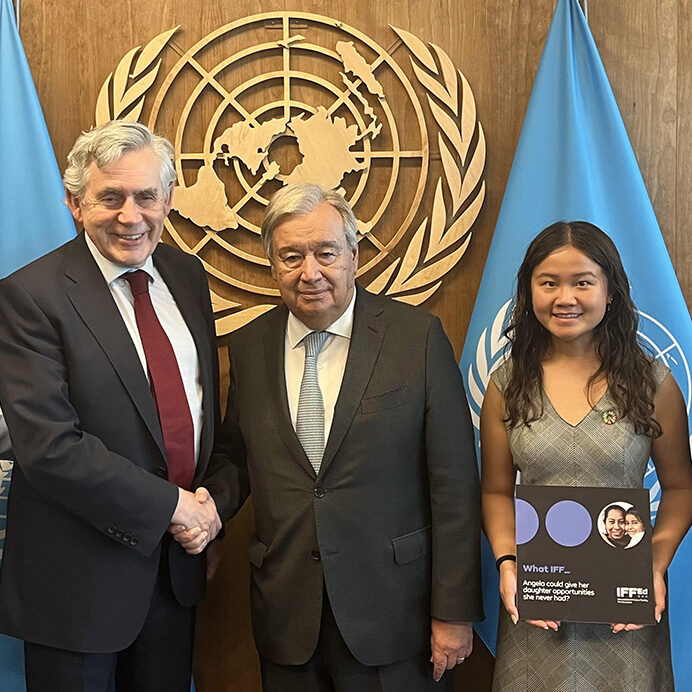World leaders will soon have a historic opportunity to tackle the global learning crisis and ensure all young people have the education and skills they need to fulfil their potential.
Photo: Office of President Paul Kagame
Education financing will be a crucial element of the Transforming Education Summit in September, which will be led by United Nations Secretary-General António Guterres during the UN General Assembly.
The goal of the Summit is to mobilise political ambition, action, solutions and solidarity to:
- Take stock of efforts to recover learning lost during the pandemic.
- Revitalise national and international efforts to achieve SDG 4 – inclusive and equitable quality education and lifelong learning for all – by 2030.
- Reimagine education systems for the world of today and tomorrow.
“The Transforming Education Summit will seek to renew our collective commitment to education and lifelong learning as a pre-eminent public good,” said Mr. Guterres.
The Summit is a crucial chance to focus on the bold and innovative action necessary to bridge the global education funding gap and achieve SDG 4.
With aid for education falling – even before the COVID-19 pandemic – there has been a growing realisation that global education needs inventive and sustainable financing methods. Investment in education should increase but the money has to be spent in the most effective way possible with the best long-term outcomes.
While many low- and middle-income countries have increased investment in their education systems, growing populations and the effects of the pandemic have exposed the gap between domestic budgets and what is actually needed to deliver quality education for all.
With the 2030 deadline looming, it is vital to take things to the next level and ensure adequate and sustainable financing match the needs of each country. This would entail packages including domestic financing, international aid, and innovative financing, such as the International Finance Facility for Education (IFFEd) which could extend $10 billion in concessional financing from multilateral development banks for lower-middle-income countries. There must also be better equity and efficiency of this spending.
In his 2021 Our Common Agenda report, Mr. Guterres said a key aim of the Summit is “to address the lack of adequate financing for national education transformation efforts, including the operationalization of the International Financing Facility for Education and other domestic and international resources.”
The steps needed to achieve this are covered in the International Financing Plan for Investing in Education and Children, proposed by Gordon Brown, the UN Special Envoy for Global Education. It has been submitted to the Advisory Committee of the Transforming Education Summit.
The Summit will have the voice of youth at its heart, with young people helping to shape the event and taking part in its three main intersecting workstreams. The workstreams are:
- National Consultations to develop a shared vision, commitment and alignment of action. These will examine the changes needed at country level to recover learning losses, get SDG 4 back on track and reimagine education into the future.
- Thematic Action Tracks to spotlight areas that need specific attention and urgent action, including education financing, teachers, safe schools and digital learning.
- Public Engagement and Mobilisation to grow a global movement for education transformation.
The UN’s Deputy Secretary-General, Amina J. Mohammed, said: “This learning crisis is a disaster for the world’s young people, especially in developing countries. It demands an immediate response. Together, we can make the Transforming Education Summit not just a gathering about education but a turning point for education – and a hefty boost for SDG 4.”





